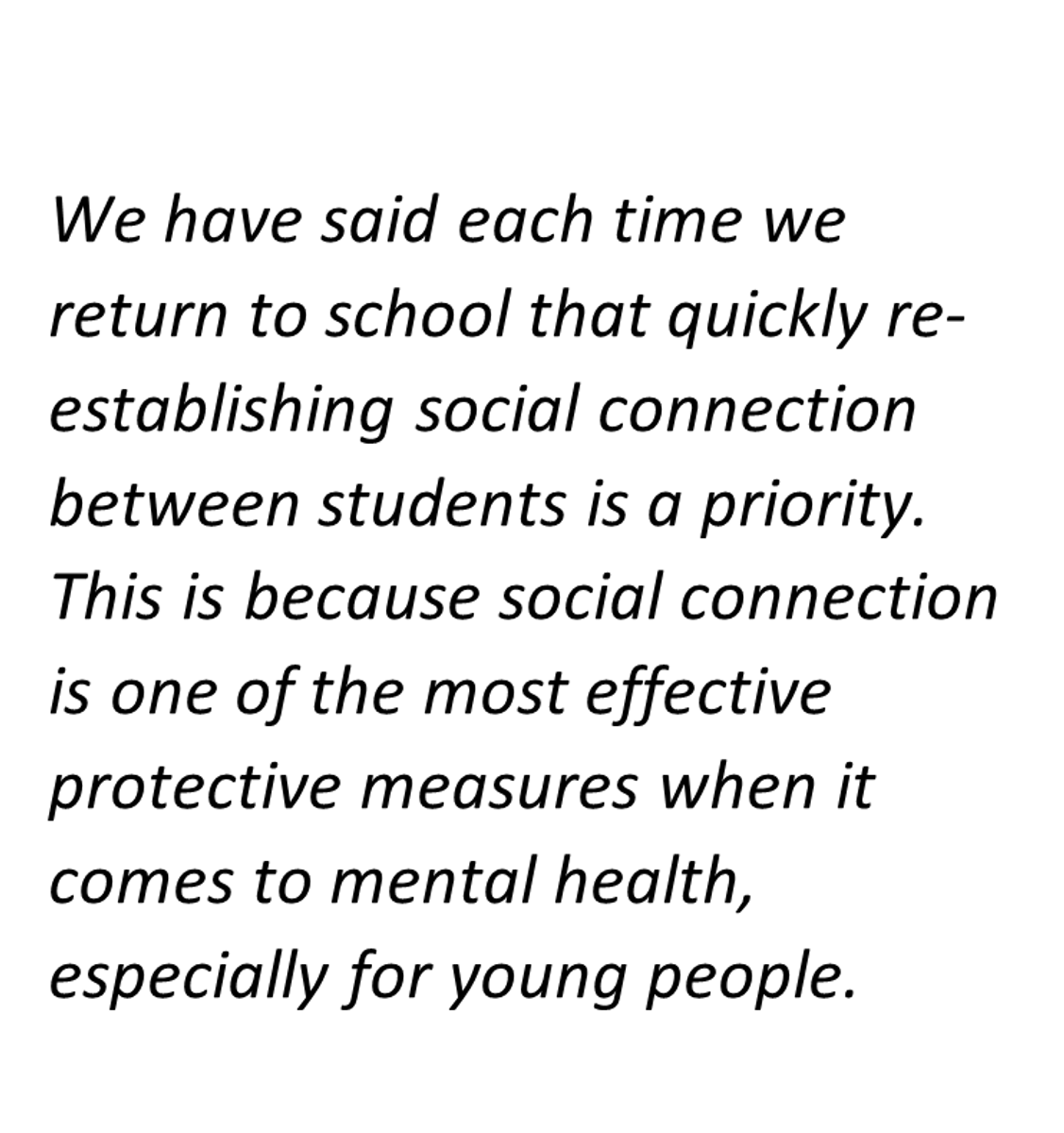From the Head

With the full-time return to school this week of our Year 7 students and the part-time return of students in Years 3 through 10 who joined our Year 11 and 12 students, the school is finally feeling more like it should. By the time this edition of eLink is published, our Year 12 students will have completed their final day of school, another familiar milestone, and our 2021 graduates will be the focus of the next edition of this newsletter.
Senior School parents and students this week were introduced to our major student wellbeing initiative for Term 4. All Senior School students have now received a link they can use to select one of twenty “Co-connect 3” activities that will be conducted during an extended lunchtime period each Friday, commencing on 22nd October for those on-site and each Friday thereafter for all students. In the Junior School, Co-connect 3 will consist of a range of daily lunchtime activities.
Last year when the impacts of the coronavirus began to be felt, preeminent mental health experts like Professor Patrick McGorry, began to talk about “the other curve”. That was at a time when Government efforts were all about flattening the COVID-19 curve, which seems an eternity ago.
As the cumulative effects of the pandemic are felt, the new phrase to describe the impact of the pandemic on mental health is the “shadow pandemic”, which is a startling notion.
Recently, Dr Michael Carr-Gregg, renowned adolescent and child psychologist, said that children had missed out on key developmental tasks due to the lack of face-to-face learning. He said;
“If you look at the basic developmental psychology of kids, they have to learn to be with friends, emancipate from their adult carers, acquire basic skills for future economic independence, and have identity formation. All four of those key developmental tasks are clearly facilitated by being at school.” – Dr Michael Carr Gregg
On the whole, most students are keen to be back in the classroom, and this has been abundantly evident this week. However, there are several reasons why some students may not be looking forward to the return to face-to-face teaching and learning. Some of these reasons are related directly to the Coronavirus pandemic and feelings of safety, others are personality-based, and all student reactions to returning to a traditional classroom setting will be influenced by whatever the child’s remote learning experience has been.
Each time we return to school, we have said that quickly re-establishing social connection between students is a priority. This is because social connection is one of the most effective protective measures when it comes to mental health, especially for young people.
We know from experience that some students struggle to socially re-connect when they return to school. It takes time for their social skills to strengthen as they become accustomed to existing alongside their friends, peers, and teachers. There is excellent advice in this edition of eLink from our School Counsellors about students returning to the classroom.
Co-connect 3 is a practical, tangible, and fun way to re-establish social connection and a sense of belonging. Our hope is that the programme gives those students who are reluctant to return to school a reason to do so. We hope that Co-connect 3 allows students to form new friendships in the instance that old ones have suffered through periods of remote learning. And we expect that Co-connect 3, just like our regular Co-curriculum, will provide an excellent opportunity for students and staff to connect on a different level and to know one another in a new light.
Within the constraints of the covid-safe measures strictly implemented at the school, I look forward to resuming as much regular school routine as quickly and safely as possible.
Dr Clayton Massey
HEAD

